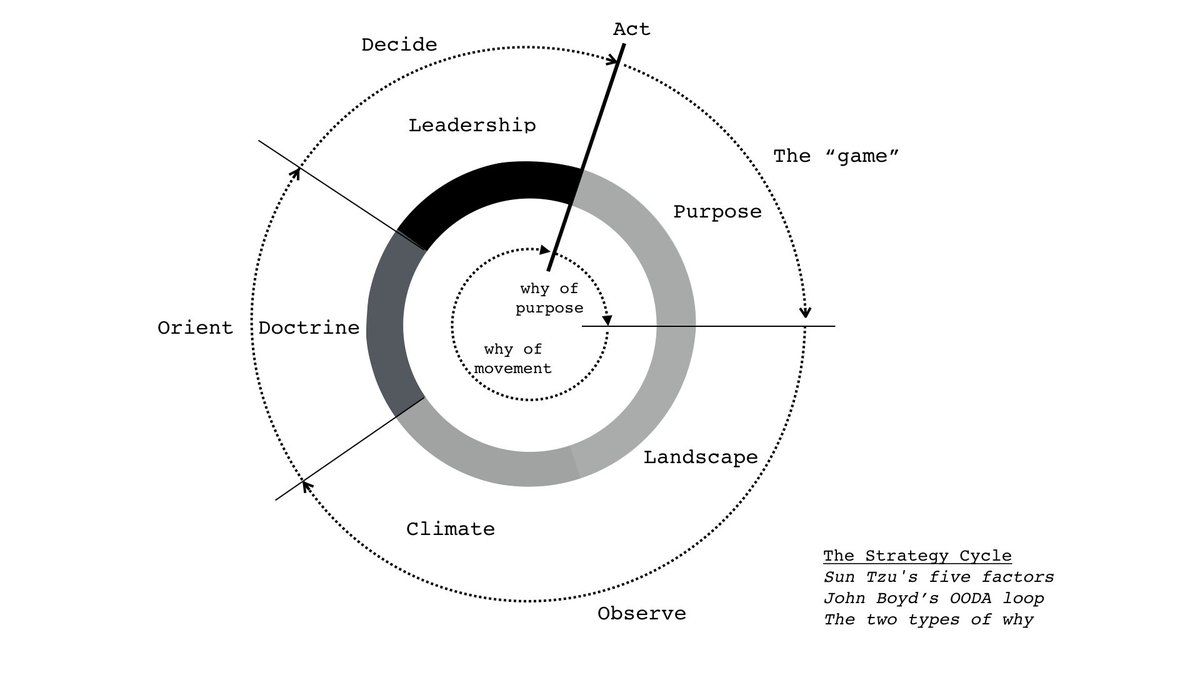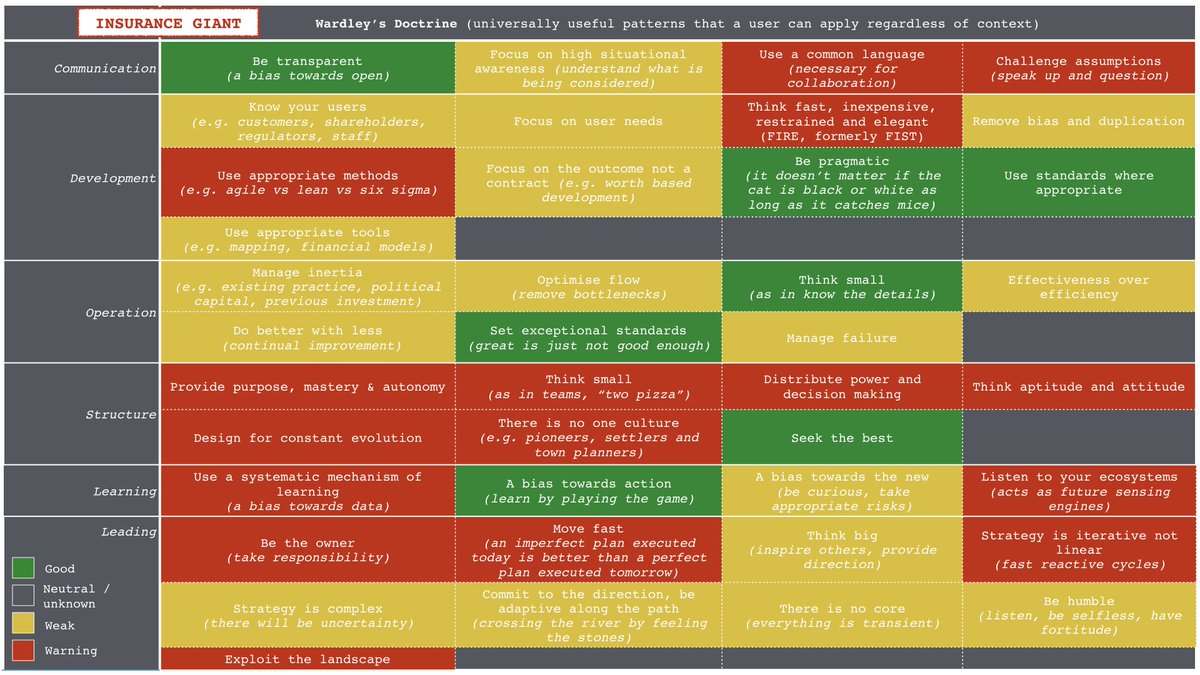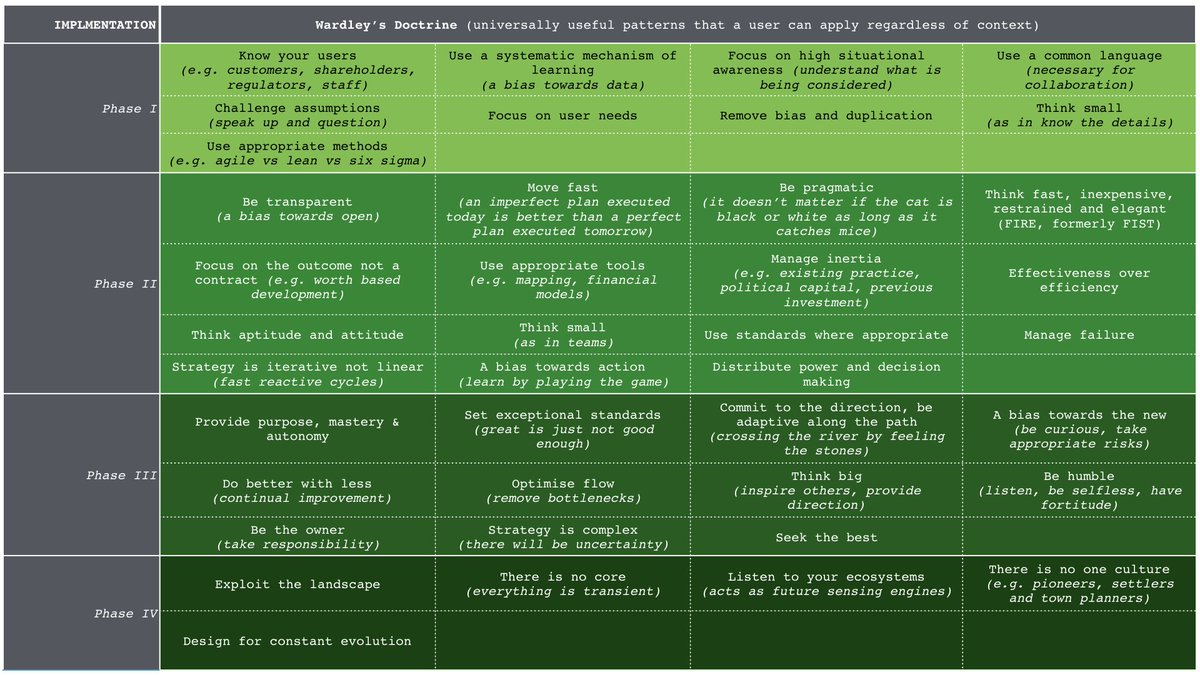Me : A lot of what people think will be the next great innovation is nonsense. Actually, most of it is. That’s the nature of the uncharted space, it’s experimental, high risk and generally results in failure.
X : We need more reliable innovation.
X : We need a consistent method.
Me : You can’t have one ...
Me : Ok, well we can start with doctrine.
X : What’s that?
Me : Do you know the strategy cycle?
X : No
Me : Ok, let us start there ….
Me : Yes and you’re only just now learning about maps and principles.
X : Are you going to help or not?
Me : Well, you seem unwilling to learn but there is one thing …
Me : Fire staff, cut costs, buy equivalent companies to replace revenue and repeat the squeeze. Hand out dividends and kick off a share buyback scheme.
X : How is that going to help us become more successful?
Me : It’ll buy you time and keep the stock price up.
Me : Hell no. If your company is going to have any future then you should use that time for yourself and your exec team to retire.
Me : Look, you run the company with no maps which means you probably don't understand user needs, components involved, duplication and you'll be riddled with misalignment, lack of communication & learning and magic solutions - Let's AI, Spotify, Agile ...
Me : Because almost everyone else is a mess as well. A few aren't and I'm afraid your competitors of the future won't be as trivial and simple to fight against as the the competitors of the past. Either adapt or get out of the way. Your choice.
Me : This is my friendly mood. I've always saved the really grumpy face for those who work for me and don't think about context. Situational awareness is not a nice to have in my book.
Me : If you don't understand the landscape, if you can't anticipate or communicate or learn or challenge effectively, if you can't organise or work out where to attack or what type of people you need then leadership is irrelevant.





















